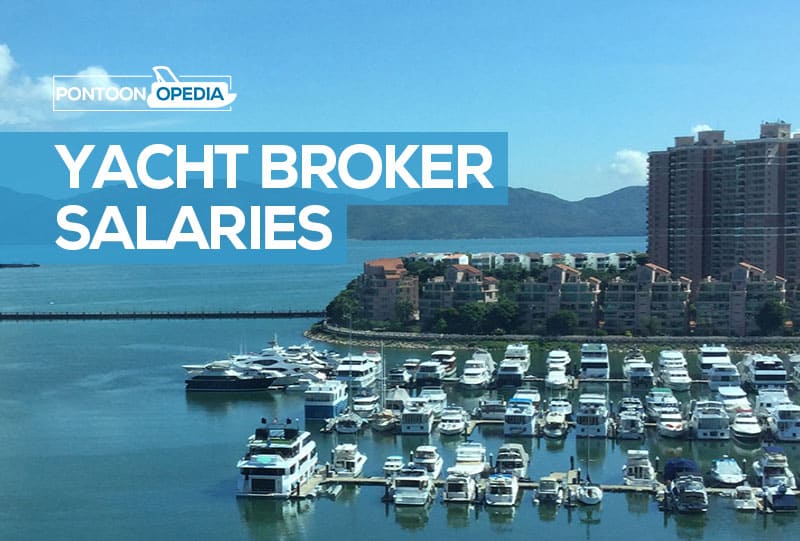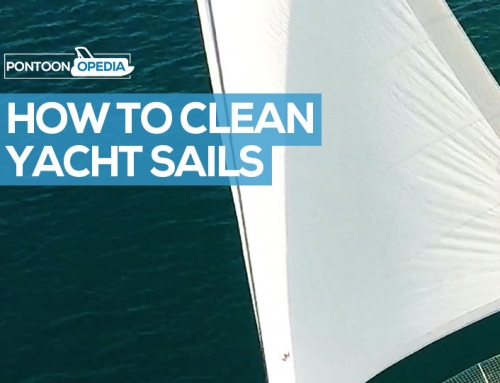The career of yacht broker has grown in prominence over the last decade, with many people thinking it could be a great way to make good money. But how much exactly is a yacht broker salary, and what could you expect to earn if you had this job?
How much does a yacht broker make? The average yacht broker salary ranges from $121,000 and $136,000. However, how much a yacht broker a year can make will depend on commission, so the money then can earn could dramatically differ, sometimes be significantly more than this annual salary estimate.
Table of Contents
How much commission does a yacht broker make?
In Washington State, the average yearly salary for a yacht broker is around $136,000, although this can vary depending on their number of sales and also where in the US they are based.
As I explained earlier, the money a yacht broker can make will depend almost entirely on how good at sales they are, therefore, the commissions they will earn on a sale.
How much commission does a yacht broker make? Typically, a yacht broker can make 10% commission on every sale made. Yacht brokers are usually paid a commission price paid by the seller once the boat has been sold, meaning that their salary is tied into whether or not they sell the boat and how much they sell it for.
What percentage do yacht brokers make?
The percentage commission that a yacht broker earns depends on the type of commission agreed. An industry standard percentage tends to be around 10% of the yacht purchase price.
Net commission means that, regardless of how much the yacht is sold for, the broker will be paid a pre-agreed price that is fixed at the start of the negotiations.
However, while this does allow some security for if the boat sells for less than anticipated, if the boat sells for a lot more than was originally thought then the broker will not benefit from any increased commission percentage.

If a broker sells one of these super yachts there are huge commission percentages to be made!
The opposite of this is percentage commission, where, instead of an agreed amount of money upfront, you agree a percentage of the selling price.
This is the directly opposite risk of a net commission percentage in that if a boat sells for a lot more than you will earn more commission, but if a boat sells for a lot less your commission will suffer and you will earn a lot less than anticipated.
Both these commissions have their own risks and rewards, although with a net commission there is no risk of losing money only a risk of not gaining any more of it through a particularly successful sale.
How much a yacht broker make can depend on their job role
When it comes to the buying and selling of yachts, there are actually two types of broker employed in the process – and this is where yacht broker salaries can differ dependent on the exact role in the selling and buying process.
- Listing Broker: A yacht broker who is employed by the person selling their boat
- Selling Broker: A yacht broker working for a prospective buyer, who locates boats for their client and negotiates a price with the sellers’ own yacht broker.
Both brokers are usually paid by the seller of the yacht rather than the buyer, with the two brokers splitting the commission from the seller 50/50. However, this commission does depend on the type of commission agreed before the negotiations started.
A typical commission percentage that a yacht broker earns is around 10%, meaning that they will earn 10% of the price of the money the boat has sold for. However, some brokers can charge more or less depending on the size of the boat.
Both listing and selling brokers are usually paid by the seller, splitting the agreed commission 50/50.
Yacht broker annual salaries
The average salary for a yacht broker, as mentioned above, is between $121,000 and $136,000, although the actual earnings per year are entirely dependent on how many sales a broker has made in a year and how much commission they have earned from it.
Like most brokers, they earn their own salary through how much they earn, meaning that if their yearly wage can rise and fall depending on how successful their year was.
How do you become a yacht broker?
Being a yacht broker is all about numbers and sales, meaning that most yacht brokers have some kind of degree in marketing, sales or business, although it isn’t a necessary degree in order to become a broker. However, a lot of experience and talent for sales will mean that you have a lot more success.
If you are looking for a position as a yacht broker so you can earn money like this each year, but don’t have any experience, entry level jobs in broker companies are a good way of getting your foot in the door.
Handy Hint: Read my quick guide to becoming a yacht broker in both the United States and United Kingdom.
In certain states in the US you will need to pass a background check and gain a brokerage license before you can legally be employed as a yacht broker.
However, even if you do not require a license, getting certified from a reputable group such as the Yacht Brokers Association of America is another good way of proving your credibility to both prospective employers and independent clients.
When do yacht brokers get paid their commissions and salary?
Even if a yacht broker is working a net commission pre-agreed upon before the commencement of the sale, yacht brokers usually earn their salary only after the yacht has been sold.
However, net commissions are becoming less and less popular, with brokers more interested in potentially earning more money on a commission of a successful sale.
When you hire a yacht broker, they are more likely to ask for a percentage commission, meaning that their final salary can increase if they successfully sell your boat for more than the expected price.
What is the annual salary of a yacht broker? The average salary for a yacht broker in the UK is around £24,000 a year (around $31,000), while in the US it is around $121,000 per year. This increase in earnings in the United States could be for a number of reasons, including the size of the country, the warmer climate in certain coastal areas of the US such as Florida making owning a yacht a far more attractive concept than in the UK.
How much does a yacht charter broker make?
Buying and selling yachts are not the only thing that brokers can do, as may people who cannot afford to own and maintain their own yacht are interested in chartering a fully crewed yacht for short excursions or special occasions.
How much does a yacht charter broker make? Yacht charter brokers can earn commission rates of around 10%, plus will also often receive tips from the people renting the super yachts.
While yacht brokers and yacht charter brokers are usually considered to be two separate jobs, there are certain brokerage companies that do have brokers perform both roles.

Super yacht brokers will earn far more money each year as the commissions will be larger.
Renting yachts is a cost-effective way of enjoying the finer things in life without having the worry about the upkeep, crewing and mooring costs of owning and maintaining your own personal yacht.
While some people decide to hire a barebones yacht without any additional crew for a short yachting trip where they control and skipper the ship themselves, others choose to have a luxury Super Yacht experience with a full crew, catering and additional activities including scuba-diving and jet skiing.
These charters are usually personalised to the client, with the cost ranging from as little as $1,000 to up to $700,000+ per person per week, depending on the size of the ship, size of the crew, additional activities and water toys, and the location and length of the trip.
Conclusion
A yacht broker is a person paid by the owner of a boat to represent them in the marketing and selling of their boat to prospective buyers.
Paid through a commission buy the seller, they are in charge of the advertising of the boat, handle buyer inquiries, attend inspections and water trials, be present and handle negotiations of the price and, once a purchase has been agreed, attend the delivery of the boat to the new owner.






